The city wants to annex into Fire District 3 to allocate more of their budget for other services
BATTLE GROUND — The public had their first chance this week to sound off over the city of Battle Ground’s plan to annex into Clark County Fire District 3 in an attempt to free up budget room for other priorities.
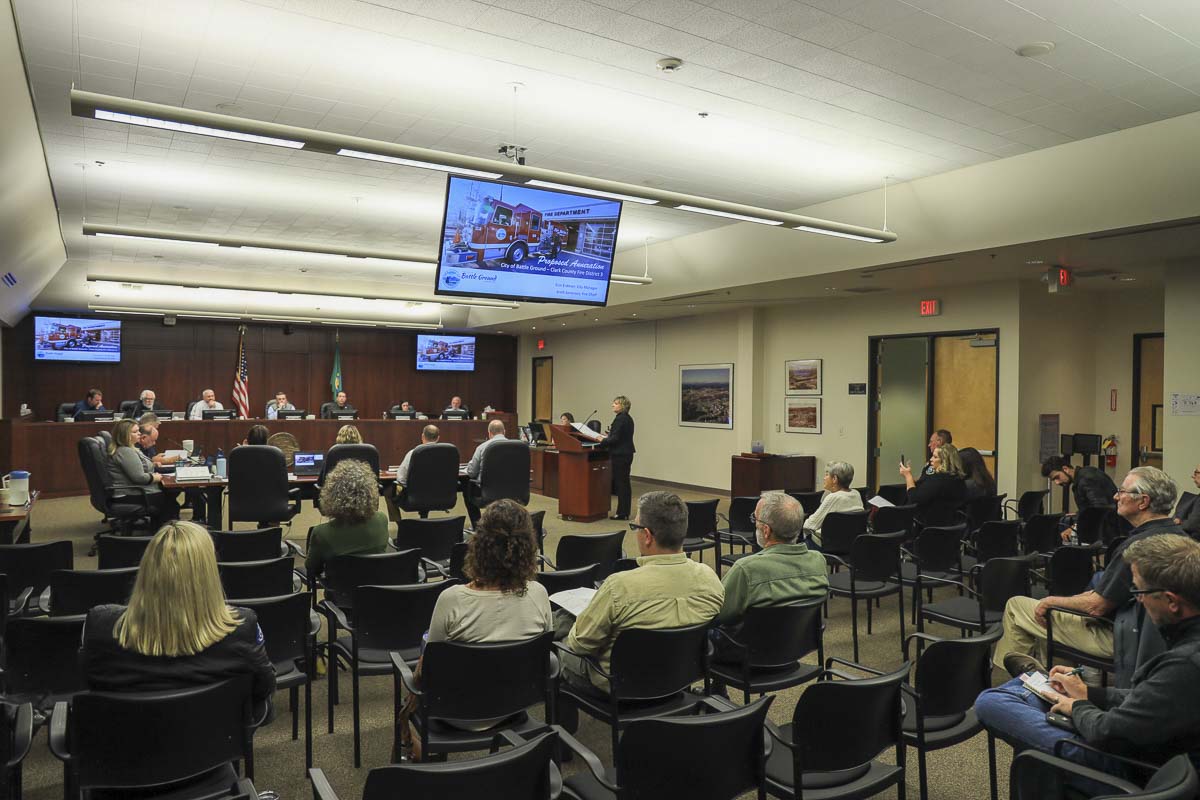
Most of the people who spoke at the City Council hearing on Monday night said they support the move, but a few said they felt unsure about some of the data being presented.
“It seems a little odd that we’re in such catastrophic dire straits for every other service that has never been in place before,” said Blaine Dohman, a captain with Clark County Fire & Rescue in La Center who started by saying he supports the annexation. “It makes me kind of question the contract and the change, and everything else, and how we got to this point.”
A presentation before the public hearing featured grim predictions of the city’s financial future if voters reject the annexation plan.
“The total general fund revenue for 2021 (would be $15 million, and our general fund expenditures are $15.8 million,” said Meagan Lowery, the city’s finance and information services director. “That’s a projected deficit of $800 thousand. That is after, for the 2020 budget, over $630,000 worth of cuts.”
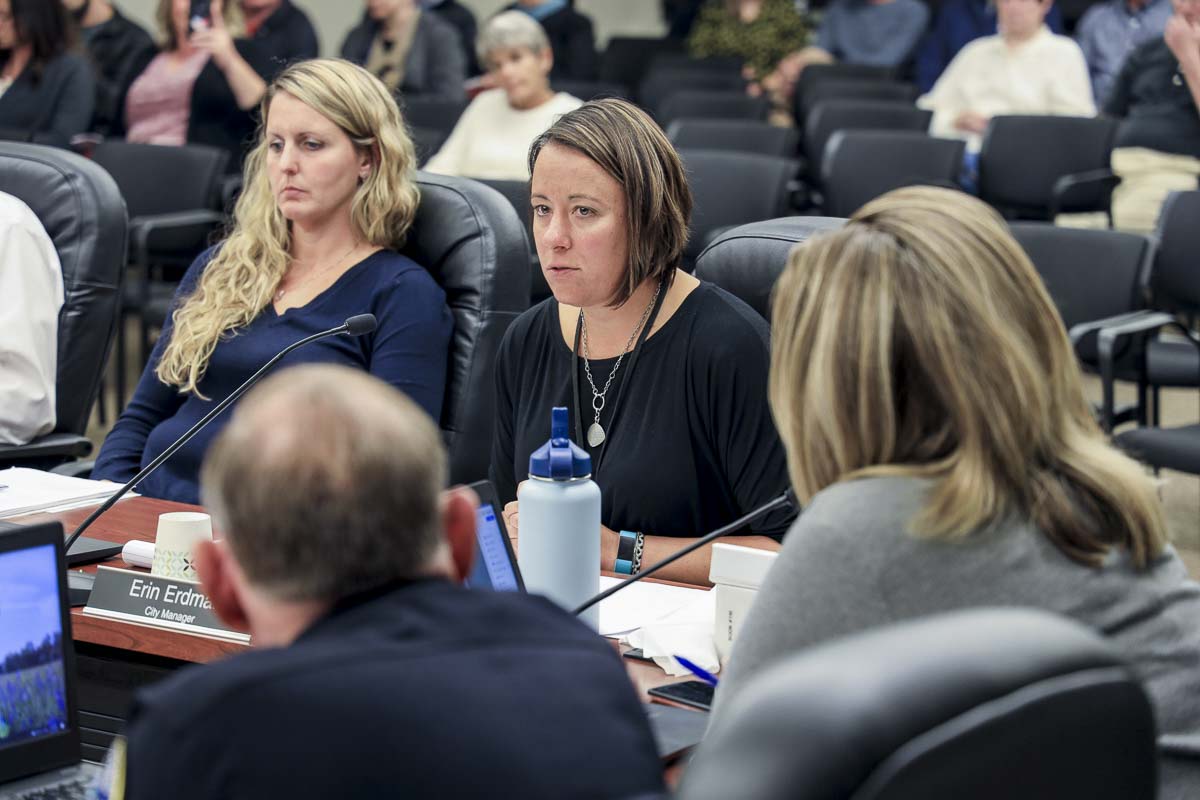
Battle Ground is currently the only city in Clark County which contracts for fire services. The current contract, which runs until 2021, costs the city $1.35 of its $1.37 per $1,000 property tax, leaving just $.02 to cover things like fire services, road maintenance, and parks.
“This is what we call a structural deficit,” said Lowery. “We can’t continue to provide services at the level we’re providing them without coming up with another revenue source.”
If annexation isn’t approved, Lowery warned, the city’s next contract with FD3 could include major service cutbacks to make it more affordable, in addition to cuts in other areas of city government including public safety and parks.
Police Chief Bob Richardson noted his department is already being cut down from 27 to 25 officers in next year’s budget, for a city with a quickly growing call volume. In addition, he said detectives looking into violent crimes or property crimes would only be able to investigate cases with a known suspect, traffic enforcement and community policing would likely be cut back or eliminated, and police response to traffic accidents would be curtailed to only those with an injury or drunk driver involved.
“We’ll have no proactive police response, drug and vice complaints,” said Richardson. “And we’re also going to have to cut our police participation in any community events such as the Halloween event, our police station tours, National Night Out, Shop with a Cop, our keynote presentations and our drug take back days.”
Scott Sorenson, fire chief for District 3, said he anticipates they will respond to around 4,300 calls next year, with the majority of those coming inside Battle Ground city limits. Population growth in their coverage area has also trended steadily upward, meaning they need to grow to meet the levels of service people have come to expect. From their standpoint, the benefit of annexation is that they can plan further out, without needing to bargain a new contract every 5-6 years.
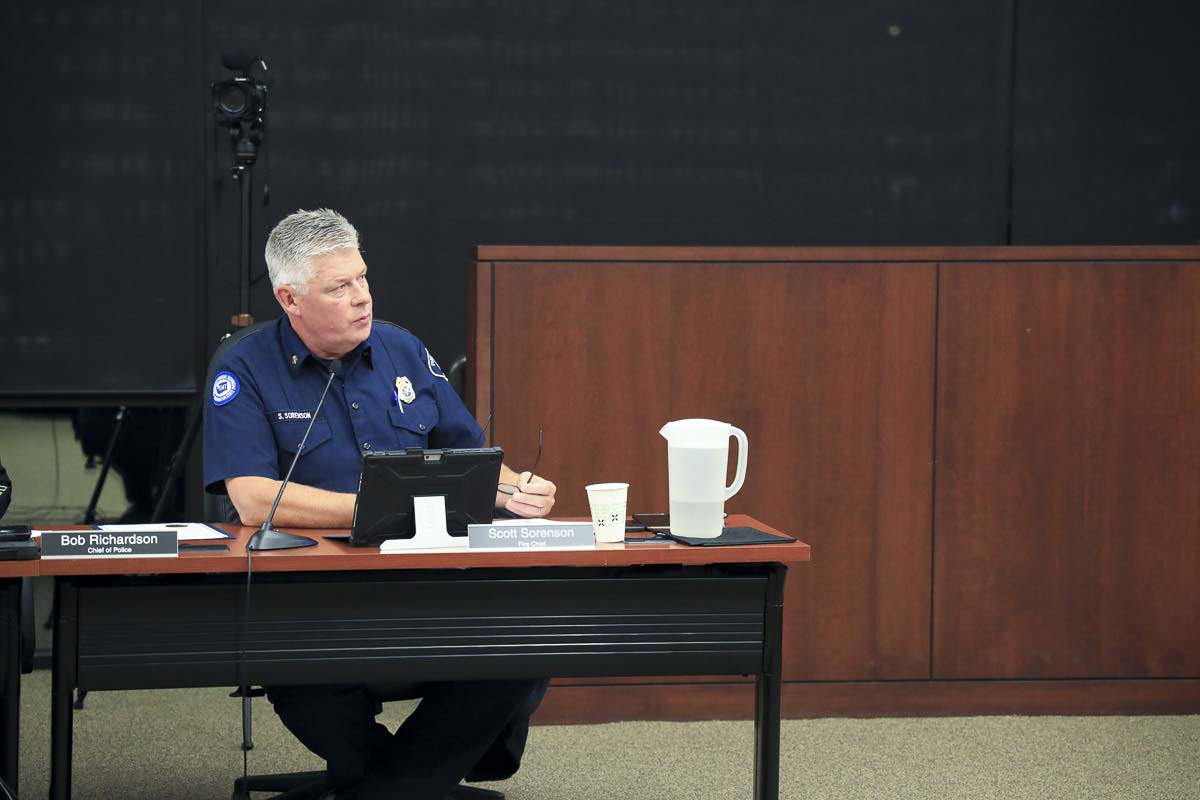
“When we don’t have funding that we can plan for in the future, we can’t plan how to build that service,” said Sorenson. “That’s what’s really at hand here in this case.”
If approved, residents of Battle Ground would pay an estimated $1.30 per $1,000 directly to Fire District 3 starting in 2022, along with an anticipated local property tax levy of $1.27. The city council has already passed a resolution to drop the city’s utility tax rate from the current 22 percent down to 12 percent if the annexation is approved. That would represent a 46 percent reduction in water, sewer, and stormwater drainage taxes for residents.
City Manager Erin Erdman also noted that the utility tax decrease will impact a greater number of people in Battle Ground, since 30 percent of residents rent, rather than own
Despite the utility tax reduction, annexation would cost the owner of a $310,000 home in Battle Ground (the median home value in the city) an estimated $275 more on property taxes in 2021, or nearly $23 a month.
Currently, Battle Ground residents pay an average of $652 in taxes and fees to the city each year. If annexation passes, the total tax bill — including the Fire District 3 levy rate — would increase to an estimated $927 a year, behind cities like Yacolt ($1,017), Camas ($971), and Washougal ($932), but ahead of Ridgefield where property owners pay an average of $845 a year to the city.
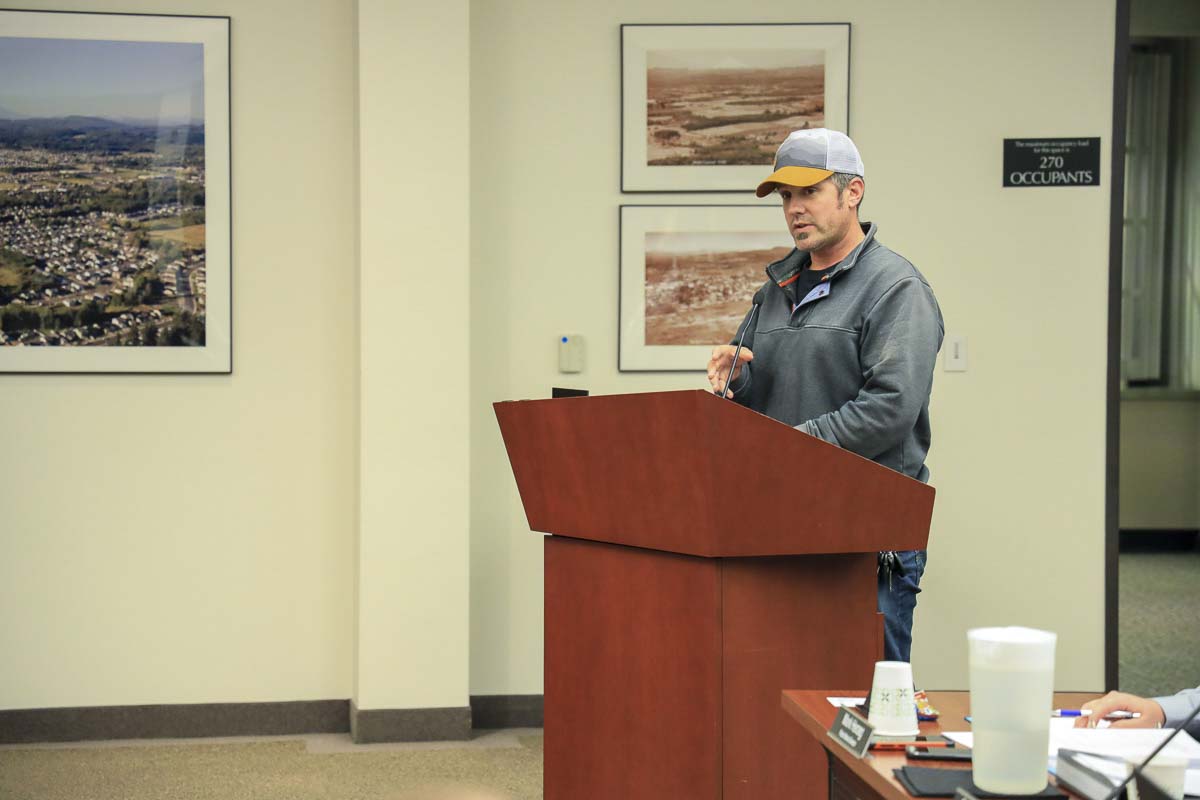
For that additional expense, Erdman says residents could expect more police officers to be hired, more streets to be repaired, city parks to be better maintained, and citywide beautification efforts, in addition to expanded fire services. Residents would also be able to vote for fire district commissioners and have a say in the future of the agency, which they can’t currently do.
The city is also bracing for the potential passage of Proposition 976 in November, which would cut local car tab fees currently used for transportation improvements, which is $20 in Battle Ground.
“So annexation would help us bridge the gap of the loss of that funding,” said Erdman, “as well as continue to put more money towards maintenance.”
Erdman noted the city is currently facing an estimated $6 million backlog in road maintenance projects.
The annexation move, which will be on the Feb. 11 special election ballot next year, comes as the city of Battle Ground moves ahead with a revisioning process. Erdman noted that public safety and interconnected trails were among the top priorities from survey respondents during the Roadmap project, both of which would need additional funding to make happen.
For his part, Dohman said he worries the current financial troubles make the contract reached with the fire district in 2014 look bad.
“I think it smacks a little bit of a bait-and-switch from what we were told years ago during the contract change,” he said, “that it was a good financial decision for the department, and now we’re being told it’s not.”
“One of the things I don’t think a lot of the citizens know is how much Fire District 3 has saved the city of Battle Ground,” said Deputy Mayor Shane Bowman, noting that the city was paying $1.50 per thousand, the state maximum, for their previous fire service contract for two firefighters, and the city had to provide their own equipment.
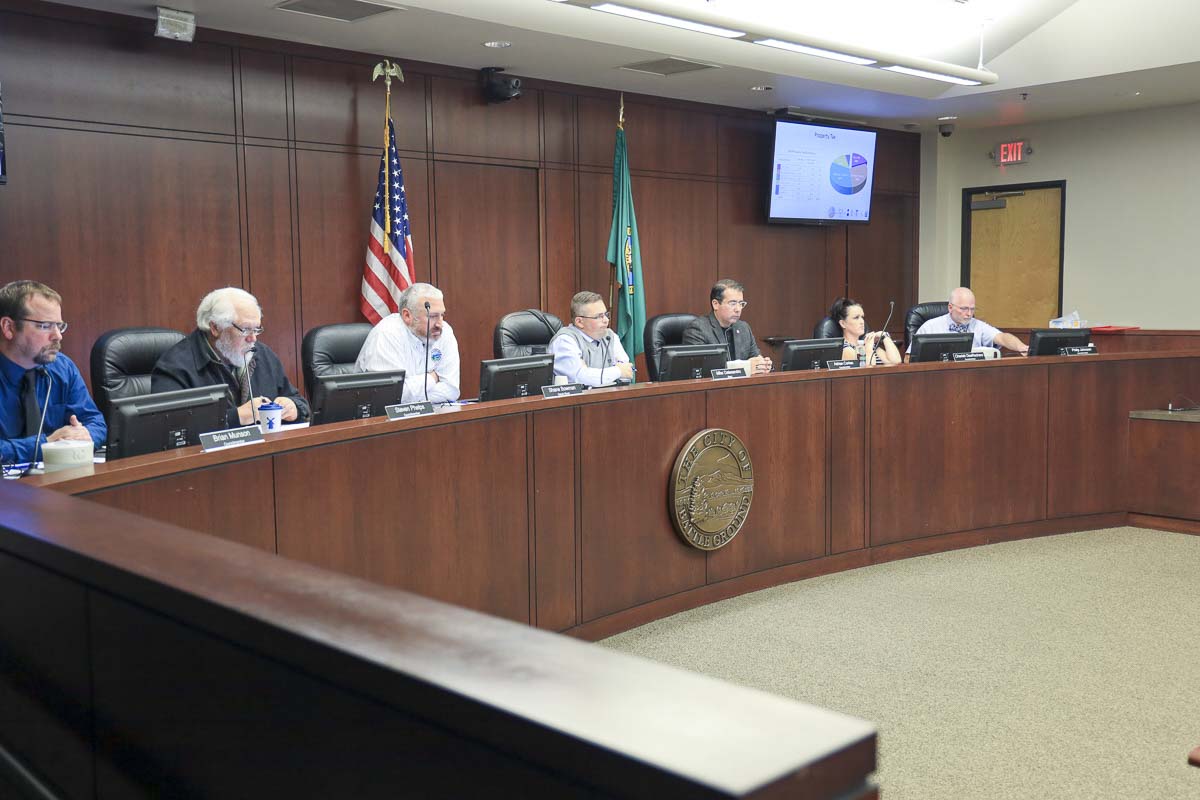
Bowman also reminded the audience that Fire District 3 was providing mutual aid under that contract, but not getting reimbursed.
“We knew that down the road we were going to have to do something different,” added Bowman. “This was a short term fix to figure out what we wanted to do.”
In 2014, Battle Ground also looked at starting its own fire department, but determined it would cost at least $9 million to start, and $4-5 million per year to operate. The existing contract with Fire District 3 costs the city an estimated $3.7 million per year.
“We don’t have options,” concluded Bowman. “We already know what all of our neighboring fire districts are charging. It’s $1.50.”
Residents will have two more chances to share their opinion on the annexation plan and ask questions. Next will be the Oct. 21 council meeting at 7 p.m., and then an Oct. 28 open house by Fire District 3 at 17718 NE 159th Street, Brush Prairie, Wash. 98606.




